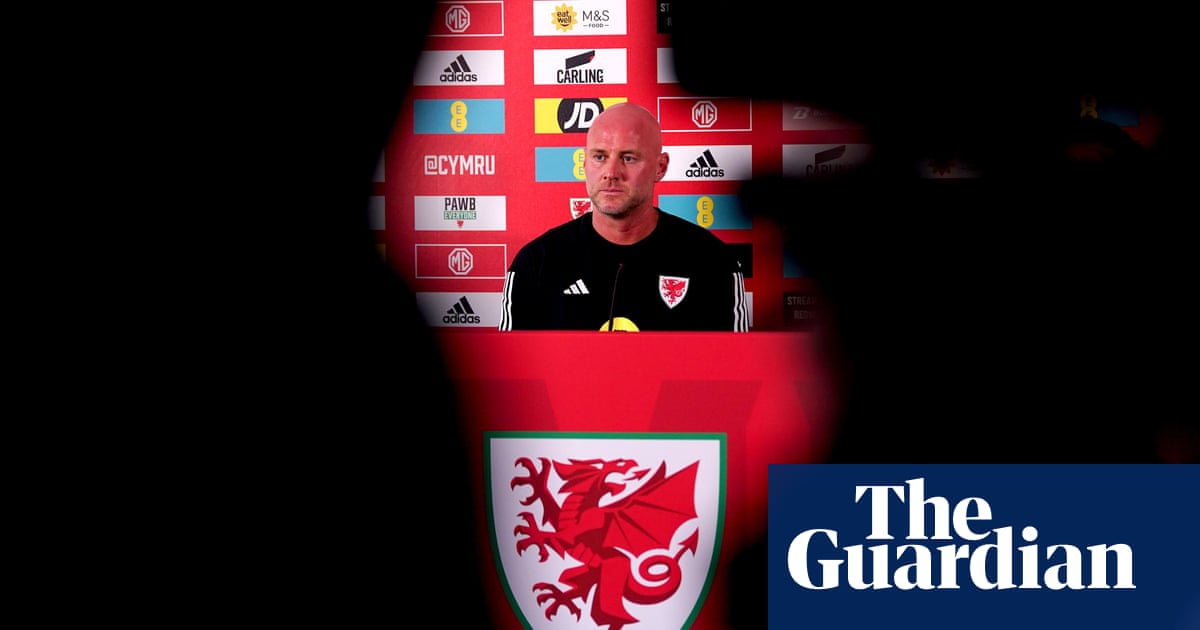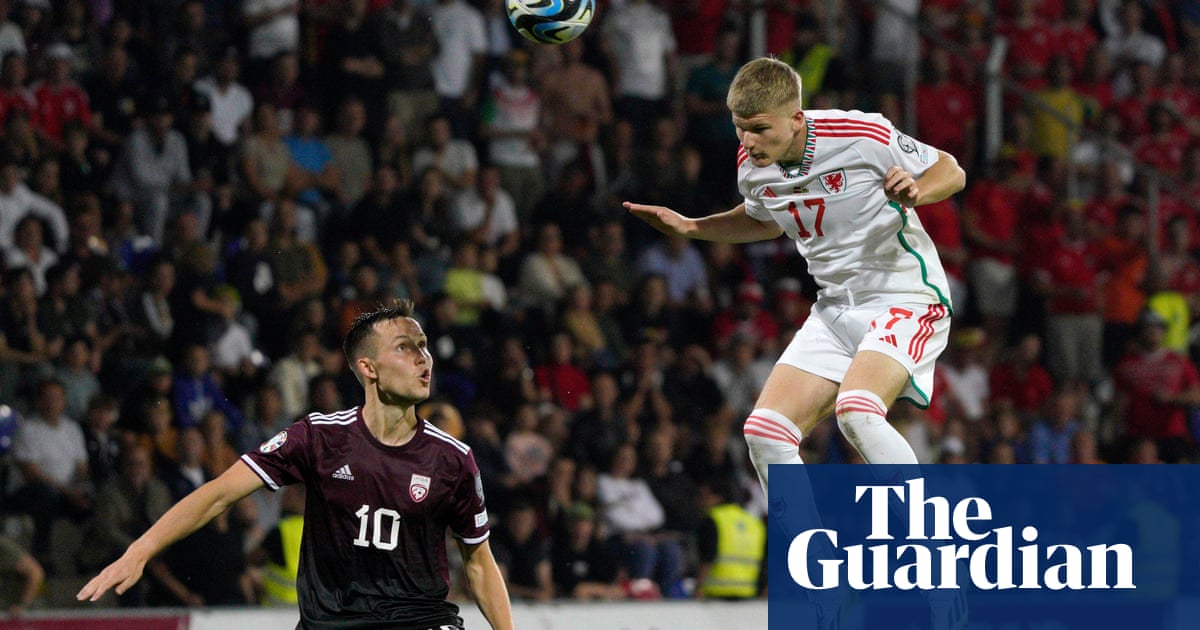
“We need to remember how to enjoy this again,” said my friend Garmon, pointing at his plastic cup of lager and the exposed concrete concourse of the Cardiff City Stadium’s Canton Stand. “Because we won’t be enjoying the football.” Wales were 2-1 down to Armenia at half-time, losing to a team 71 places below them in the rankings , in a Gouldian throwback to the mid-90s, when Bobby’s team turned humiliation into a habit, losing 7-1 to the Netherlands, 2-1 to Leyton Orient and getting locked in the prison Bobby Gould had inexplicably decided to train in.
Wales hadn’t lost a home European Championship qualifier since 2011, and home defeats in competitive matches over the past 10 years are still rare enough to stupefy. For Wales fans of a certain vintage, watching the team crumble in a vital qualifier we expected to win prompted an unpleasant Proustian rush. I wonder whether that term has ever been used in relation to watching players you’ve never heard of from a former Soviet state waltzing through your midfield.
After a surprisingly good start to the qualifying campaign for Euro 2024, with four points from the first two games, including the bonus of a joyful point gained in Croatia, Rob Page had targeted two wins from this international break, but the more circumspect Wales supporters would have been quietly delighted with a draw in Turkey if Armenia had been dispatched in Cardiff. With Page’s coaching staff revamped after the disappointing performances in Qatar, a sell-out crowd at the Cardiff City Stadium was in buoyant mood before kick-off.
Cardiff is an event city, and how Wales supporters felt sorry for the fans making their way to watch Blondie at the castle or Peter Kay at the arena. On a warm summer’s evening, Armenia at home was the hottest ticket in town. Wales immediately clicked into gear, Kieffer Moore heading wide before Dan James opened the scoring. At this point everything seemed so simple, until Armenia equalised, the game became pandemonium and I began to wish I was singing along to Heart of Glass or buying an unofficial Peter Kay tea towel with the words “garlic bread” written on it from a shifty bloke outside the venue.
James and Harry Wilson provided a stream of crosses, which Moore and Joe Rodon failed to convert. In a throwback to the World Cup Wales failed to track midfielders into the box and appeared grimly vulnerable whenever Armenia were in attack, the life being sucked out of the stadium as 32,000 people watched a calamity unfold.
For the best part of a decade, Welsh success was built on the foundations of being a street-smart team who were hard to beat. We now seem to be sliced open with alarming ease. In a dizzying 12 minutes Wilson pulled one back, Armenia scored twice and Moore was sent off for kicking out at Armenia’s goalkeeper, Ognjen Cancarevic, after a piece of gamesmanship as dastardly as it was effective. Cancarevic got himself tangled with the striker, complete with the exaggerated flailing of Marcel Marceau pretending to wash a big window, held on to Moore’s legs, and in frustration the striker lashed out, inviting the goalkeeper to react as if he’d been dipped in lava.
“It’s a red card in the modern game,” bemoaned the pundits. I found myself becoming momentarily attracted to that rare, medieval form of football that still exists in Derbyshire, where on Shrovetide you can kick your next-door neighbour’s head in outside Superdrug and everyone laughs it off. Moore looked to the heavens as he trudged from the pitch, and Armenia players celebrated wildly with their goalkeeper. It summed up our night.
And so to Turkey, a tricky fixture that suddenly had enormous significance. Page brought in Joe Morrell to sit alongside Ethan Ampadu, to shore us up defensively and allow Aaron Ramsey to play further up. The 1,200 or so Wales fans created a party atmosphere in a torrential downpour, and one dropped his wallet down a drain only for it to be retrieved by a local with a fishing rod. At this point, the impending football was an unwelcome distraction.
Despite having a Chris Mepham own goal disallowed for offside, Wales were tentatively coping in the first half, until Morrell was given a straight red on 41 minutes, at which point an onerous task became seemingly insurmountable. If Friday night was shambolic, Monday night became chaos. In a humid, hostile atmosphere, Turkey had another goal disallowed, Wales dug in, Wilson had a fizzing free-kick turned round the post and Danny Ward gave a fantastic wink to the camera before saving a penalty. We wondered whether we were seeing things.
The relentless pressure became overwhelming however, Umut Nayir breaking the deadlock on 72 minutes before Arda Guler scored with a fantastic effort 10 minutes from time. After four games our hopes of qualifying automatically lie in tatters, and questions are being asked of Page. In this brave new world where expectations of Wales are at an unprecedented high, there was an anger at the Cardiff City Stadium that felt different to the resignation of the past.
Thoughts turned to previous difficult periods. History has been kind to John Toshack, because by Euro 2016 the performances that were so stultifying at the time felt like the painful part of a grand plan. The success of Chris Coleman’s side, which has so few survivors, was built on tactics devised to get the most out of Gareth Bale and Ramsey. It’s difficult to work out what Page’s preferred system is. A back five seems to have been replaced with a back four. We are neither a possession-based team nor a side that play on the counterattack.
If Page is in charge of a team’s shape, one thing he cannot control is how few minutes his players get at the top level. Of the team that started against Armenia, only Wilson and Ben Davies play regularly in the Premier League. Not only does Page need to find a system that works, it needs to suit a squad often out of favour with their clubs and the worrying lack of match fitness that brings. As a legacy of the Bale era, our season in Nations League A means a playoff for Euro 2024 is very likely. Page has some serious thinking to do.












